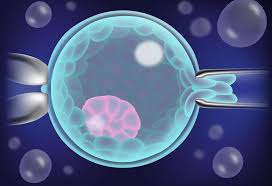Types of PGT
PGT-A (Aneuploidy): Detects abnormal chromosome numbers (e.g., Down syndrome), ideal for older patients or those with recurrent pregnancy loss.
PGT-M (Monogenic Disorders): Screens for specific inherited conditions (e.g., cystic fibrosis, muscular dystrophy) if parents are carriers.
PGT-SR (Structural Rearrangements): Identifies chromosomal rearrangements in parents with translocations.
Process
Embryos are cultured to the blastocyst stage.
A few cells are biopsied from each embryo and sent for genetic analysis.
Embryos are frozen while results are processed (1–2 weeks).
Healthy embryos are selected for frozen embryo transfer (FET).

Benefits
Increases live birth rates by selecting euploid embryos.
Reduces miscarriage risk (e.g., from 50% to 20% in older patients).
Prevents passing serious genetic disorders to offspring.
Risks
Embryo biopsy carries a small risk of damage (<1%).
Not all embryos are viable for testing or transfer.
Additional cost and time for frozen embryo cycles.

